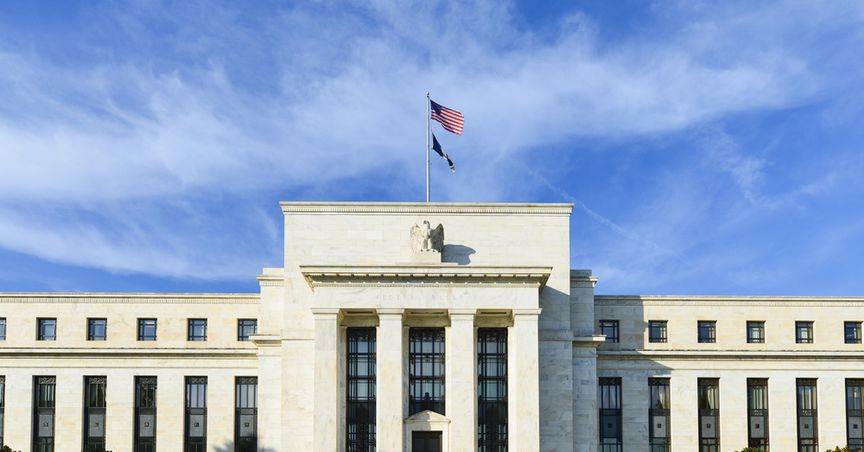Summary
- While Global Virus Crisis (GVC) has hugely impacted economies and markets, rebooting economic growth is another mounting challenge for countries.
- To protect businesses during the pandemic, Federal Reserve has announced major corporate bond-buying plan.
- Fed reserve stated that the bond-buying facility requires company debt over exchange-traded funds.
- Fed Chair Jerome Powell has emphasised that Fed is going to use all their tools to aid the economy in the pandemic environment.
- Prudent mix of dedicated fiscal and monetary packages is needed to bring economies and businesses back into action.
Covid-19 crisis has devastated the superpower US in terms of casualties and economic downturn. The world economy is undergoing a deep recession due to the Global Virus Crisis (GVC). This crisis is unique in terms of uncertainties on many levels – health, businesses, economies and markets.
The biggest challenge is rebooting the economy while dealing with the deadly virus. The economies are re-opening after global lockdown, but there are restrictions to follow, and consumer behaviour is also changing due to the prolonged crisis with no solution visible in the near time.
That said, in yet another program to safeguard investors and public at large from the impact of coronavirus pandemic, Federal Reserve Chairman Jerome Powell has announced that it would expand its bond-buying program to add more corporate bonds.
The fed chairman, Powell said that the Central Bank would begin the purchase of companies’ corporate bonds under its Secondary Market Corporate Credit Facility. It comes under an emergency lending program that until now have only bought exchange-traded funds.
The US Central Bank, for the first time, revealed its plans on how it will implement its buying strategy. It said that it would support a diversified market index of the corporate bonds designed especially for the facility.
The Central Bank has built the bonds index internally. The index is a collection of corporate bonds in the secondary market.
The US firms have issued the bonds in line with the programme’s standards such as maximum maturity, minimum rating, and other criteria. As per the statement released by the Fed, the corporate bonds indexing approach would complement the programme's current buying of ETFs.
The Fed prefers corporate bond purchases over ETFS: Powell
Powell said Fed will gradually move away from ETFs and will continue buying bonds as it is a better solution for market functioning and supporting liquidity.
To support the investors in the virus-stricken market, the Fed announced towards the end of March that it would start two facilities to enter the USD 9.6 trillion corporate debt market.
Out of these two, one facility is to buy bonds directly from the issuers and others to buy from the open market. The second one, Fed has started with some possession of ETFs, which follows indexes of bonds across all grades. The Federal Government has begun these programmes for proper market functioning.
Powell also cited that the programs are showing positive impacts on the market, businesses are not showing a lot of financial stress, and they do not need to go for cost reduction measures. Now both people and companies can borrow.
These are emergency relief programs, and these will be pulled back when they are no longer required in the market. Along with the corporate bonds, the Fed is also purchasing a minimum of AUD 80 billion in Treasurys and AUD 40 billion in mortgage-backed securities per month.
Fed is not going to leave any stone unturned to aid the US economy
The US and global economy cannot recover completely until the coronavirus pandemic gets over, however, until then the Fed Chair Jerome Powell said to the lawmakers on Wednesday, that Fed is going to use all its tools to safeguard businesses and households.
The recession has different impacts on different parts of America with African Americans and minorities as the worst affected.
Powell also added that if the crisis continues longer and the situation is not reversed soon, it can have a more profound influence on the economy that can further widen the gaps in the economic well-being.
The congress has injected around USD 3 trillion, and the US central bank has provided trillions of dollars of credit into the market to protect it from further downturn due to the Covid 19 effects.
Bulls battle with the pandemic is not an easy one
The crisis calls for a medical breakthrough to make businesses and lives back to normal. However, as badly as the world is waiting for such treatment, it looks that it is far from coming.
Right now, there is so much uncertainty in the market that it fluctuates on eachpiece of news. Some are gloomy, and some give hope. Many stocks surged when Fed announced the buying of the bonds. Again, the market is facing a tough time due to the fresh outbreak of the virus in the country.
The US has seen the worst ever crisis during the first wave of the coronavirus. Now with almost record-high new cases daily, US fears that worst might be yet to be experienced.
While, China is also struggling to control the second outbreak in Beijing. The lockdown measures have returned, and economic activities have reduced drastically.
In the pandemic environment, all hope is on the Central Bank and Government's stimulus packages as the virus continues to create havoc on lives and economy. The emergency bond-buying facility was much needed with hopes that it will bring some positivity to the market.




